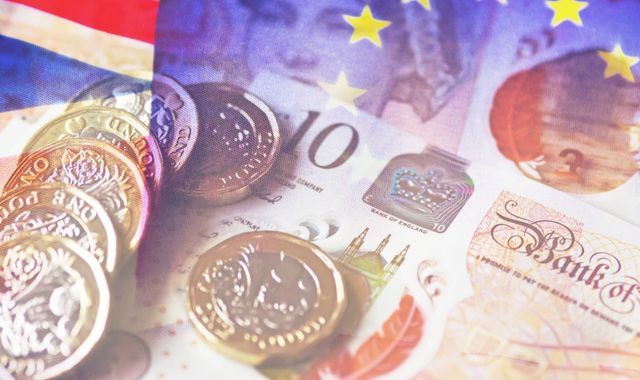Pound rebounds against dollar after Tory defection
Written by News on 03/09/2019
The pound bounced back on Tuesday afternoon from its lowest level against the dollar since the so-called flash crash in October 2016, shortly after Tory MP Dr Phillip Lee’s defection ended the government’s working majority.


News of Dr Lee’s move to the Liberal Democrats was enough to reverse sterling’s earlier decline, pushing it up 0.16% against the dollar to $1.2084 and up 0.21% against the euro.
The pound had fallen as low as $1.1957 – down almost 1% on the open. But it later recovered much of the losses as events unfolded in Westminster.
The slide began early on Monday when weak manufacturing data did little to ease fears of a UK recession, with the currency trading above $1.20 and just below €1.10 as election speculation emerged and grew.
The decline continued as politicians continued to squabble over Brexit and the theory that the prime minister was ready to go to the country should MPs, including Tory rebels, win a parliamentary bid to block a no-deal Brexit scenario.
Boris Johnson used a statement outside 10 Downing Street to say he did not want an election.
But a government source has since told journalists a poll would be called for 14 October should Mr Johnson lose Tuesday’s cross-party vote.
The pound has been wracked by Brexit uncertainty ever since the 2016 referendum and pressure on the currency has intensified in recent weeks as the prospect of a no-deal scenario grows.
It was trading at levels against the dollar not seen since 7 October 2016 when inexperienced traders in Asia were blamed for causing a ‘blip’.
Then, sterling slipped by up to 6% to $1.1450 in a matter of moments before recovering its poise.
Unlike on Monday, when sterling’s weakness boosted the value of dollar-earning companies to bolster the FTSE 100, the index slipped on Tuesday as UK-focused stocks came under pressure.
However, the FTSE still outperformed its European peers as values were knocked by fresh fears for the world economy amid the US-China trade war as American traders returned following a public holiday on Monday.
Investors selling off UK assets and steering clear of sterling – analysis by economics editor Ed Conway
Exchange rates are a pretty sensitive barometer to political instability. Ask the people of Argentina, who have seen their currency, the peso, collapse amid election results that suggest the current government will soon be out on their heels.
Now, clearly the pound is not the peso and Britain is not Argentina (though it’s worth reflecting that once upon a time Argentina was one of the world’s richest economies) but throughout the past three and a bit years the pound has yo-yoed along with Britain’s economic fate.
Broadly speaking, when it has looked as if the UK was close to a Brexit deal, the pound strengthened; when no deal seemed more likely, alongside the threat of an election and a new government, it has weakened.
This is as you’d expect: political chaos and economic barriers to trade are generally not good for economic growth and a country’s currency partly reflects whether people want to put their money into a country and see it as a safe economic bet.
So the fact that the pound is down to the lowest sustained rate vs the dollar (in other words ignoring the ‘flash crash’ caused by a trading glitch in late 2016) is of note.
:: Listen to the Daily podcast on Apple Podcasts, Google Podcasts, Spotify, Spreaker
Now, in the long run a weak pound has all sorts of implications, some good some bad. It can help exporters but it can also push up prices of goods in the shops. And there is no guessing where the pound will end up in the coming weeks. It could rocket higher if, against all expectations, there is a last minute Brexit deal. It could slump even lower if a no-deal becomes assured.
But this is what happens when investors around the world take a financial stance on a given country. And in Britain’s case, it appears that that stance is to sell off UK assets and steer clear of sterling.
(c) Sky News 2019: Pound rebounds against dollar after Tory defection







